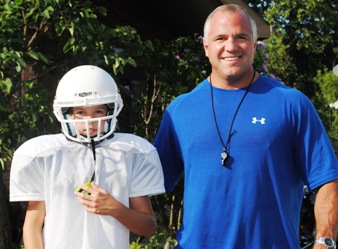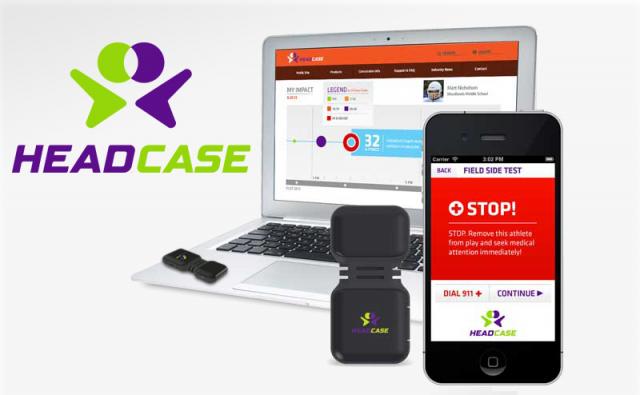By Dan Nicholson
I'm a proud father of three active kids now, but before I was a dad and coach, I was a student-athlete. I played almost every contact sport under the sun, and I got hit. Hard. Between playing football, hockey, baseball, boxing, rugby and martial arts, I sustained over 10 concussions.
I didn't think twice about the head impacts I endured. But around age 30, things began to change. My memory wasn't what it used to be, and I began to experience adult onset depression, anxiety and mood swings. Sometimes I would experience gaps in my day, and I just felt "off."
At first, the doctors didn't know what to think. I went from specialist to specialist trying to find an answer. I wasn't prepared for what I would be told. I had, they said, all of the precursor symptoms of CTE (chronic traumatic encephalopathy), a dementia-like brain disease afflicting an unknown percentage of athletes exposed to repeated brain trauma. What potentially lies ahead for me is not pretty, and if I had known then what I know now, it could have been different.
Concussions are a very real and serious issue in youth sports. Professional athletes have expensive equipment, experienced medical staff, and access to top-notch healthcare. Our kids don't. And with 33 percent of hits being taken during practice, odds are good that parents may not even know their child has been hurt.
The scary statistic is that about one in five high school athletes will suffer a concussion this year. Sometimes kids are up front with what they are experiencing, sometimes they are not - and they may not even understand something is wrong.
The growing brain requires a longer recovery time than an adult brain. If kids return to play before they are healed, the consequences of a second concussion can be grave and devastating.
When my own three kids began playing contact sports, I wanted them to be safe. I didn't want them experience what I struggle with every day. I also wanted the kids I coached in football, hockey and soccer to be safe. My business partner, also a father of four, shared my same concerns.
New impact sensor
Together we created the Head Case Concussion Management System, an affordable ($99) three-part system that measures head impacts, records data in a cloud-based central repository, and provides diagnostic tools to detect symptoms of a concussion.
The system uses the Head Case Impact Sensor, a small device inserted in a helmet to monitor and measure head impacts. The sensor can detect impacts of concern and alert parents and coaches.
If an impact of concern occurs, the coach or parent can administer a concussion test through the free Head Case Mobile App. If the test reveals symptoms of a possible concussion, the athlete is alerted to seek medical treatment and discontinue play. The failed test is then  automatically sent to the Head Case Website with the GPS coordinates of the Mobile App. Based on the unique ID of the athletes sensor, the Head Case Website instantly looks up the emergency contacts of the injured athlete and sends them an email with the top three recommended treatment centers in the athlete's current vicinity.
automatically sent to the Head Case Website with the GPS coordinates of the Mobile App. Based on the unique ID of the athletes sensor, the Head Case Website instantly looks up the emergency contacts of the injured athlete and sends them an email with the top three recommended treatment centers in the athlete's current vicinity.
A comprehensive head health record including hit data and failed concussion test results is stored on the Head Case Website in an athlete's profile. Athletes, coaches and parents can review the data, along with concussion analysis and reporting tools.
Our ultimate goal is to protect kids from the risks of undetected concussions. Playing with a concussion can be fatal and almost guarantees additional injury to an athlete's brain. We can't put our kids' futures at risk because of undetected concussions.
Dan Nicholson is a life-long athlete, coach and father of three young athletes, and the co-founder of the Head Case Company.








